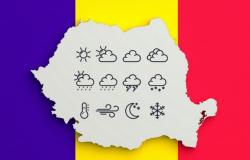What is philosophy?
Gilles Deleuze, Félix Guattari, translated by Bogdan Ghiu
Hecate
2020
Finally, the analytic/continental distinction is more tired today than it was four or five decades ago, and there are many in the very heart of French postmodernism who read Chomsky or Searle at first hand, as there is a fine tradition of French academics (as Canguilhem or Bouveresse) who understood what was happening across the sea and ocean, so it was never a completely clean distinction. Deleuze himself is a very good connoisseur of the philosophical tradition, better than Quine in any case, including that of the twentieth century, and draws What is philosophy? concepts from Russell and Wittgenstein. How he uses them and, above all, in what style, which can only seem irresponsible – that’s where the distances between them are best seen.
In short, what does philosophy do for these two (four) protagonists?
For Deleuze and Guattari, it creates concepts. Concepts are not necessarily related to each other, although they can form families and have histories; in any case, the philosopher creates them as the artist creates works of art, or rather, sensations and affects. They are manufactured and usually manufactured on a plane of immanence. It is not clear from the very beginning what a plane of immanence is, but translated, it is something like this: a philosopher walks through the world and the world is populated by people, objects, customs. In this world, other people whisper in his ear about gods, about customs, about “how things are done,” about “what ought to be believed,” but the philosopher distances himself from all this chaos of opinions and impressions and throws over he a safety net, which is the plane of immanence. The plane of immanence is a kind of declaration: the decision that, from here on, you look at the world only in terms of what it is and not in the invented terms of some other, metaphysical, “transcendence” plane.
The Greeks did it, very imperfectly, when they said that the world is only water, only fire, only change, only permanence. Spinoza, the philosopher, does it par excellence for Deleuze, when he says that it is only nature and only substance. Empiricists do when they say that there is little else beyond perception, etc. The essential thing is that, by postulating a plane of immanence, you refuse the Platonic bifurcation of the world between a here and a there. When you have a here and it is stable and you stop fooling yourself that there is an beyond, you start producing concepts, playing with them. It’s unclear why thinkers who think a transcendent aren’t full philosophers, but I think it’s because they don’t like them. Well, there’s nothing wrong with that, Quine doesn’t like them either, and that’s one of the few places they meet: in their anti-metaphysical zeal.
These concepts as uneven sums of thoughts. Deleuze insists that they are not meant for discussion – because philosophy does not discuss, yes?, it is not communication or marketing. Rather, he thinks of it as a factory of doctrines that resist a number of illusions: the illusion that things are eternal, the illusion that there are universal things, the illusion that there is a transcendent, etc. However, something of the concept escapes history and is not as immanent as it is thought; experimenting with concepts, philosophy knocks at the doors of a Hegelian eternity, but no one opens the door.
In this thought-free creation, philosophy resembles the arts and sciences, which attack from their own directions the chaotic reality, producing illusions, events, emergencies. Science always pulls events toward their state of affairs, forces them into a “frame of reference” (vs plane of immanence), and forces them to be expressible in descriptive sentences. But essentially, science, art, and philosophy are also thoughts—not equivalent, but parallel, but moving in the same direction. They “want us to sink the firmament and sink into chaos. Only at this price will we be able to defeat him.” It’s a bit of an apotheotic conclusion, but it follows obliquely from what has been said so far.
Otherwise, the book is full of things that I don’t understand and that I don’t think can be understood. There are passages that you read more under the regime of invention and exaltation. Sokal, in a text not very forgiving with the erudite ambitions of French postmodernism and which was not translated, perhaps also because it would put the Francophile obedience of Romanian culture in a bad light, says that it is nonsense and “badly digested scholarly terminology”. Quine and Ullian would agree and add that what Deleuze and Guattari are doing is not even wrong.






